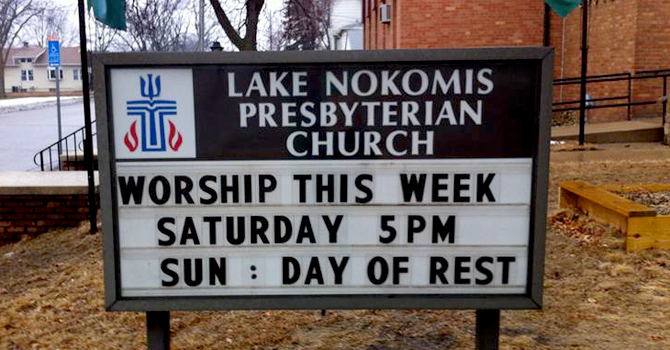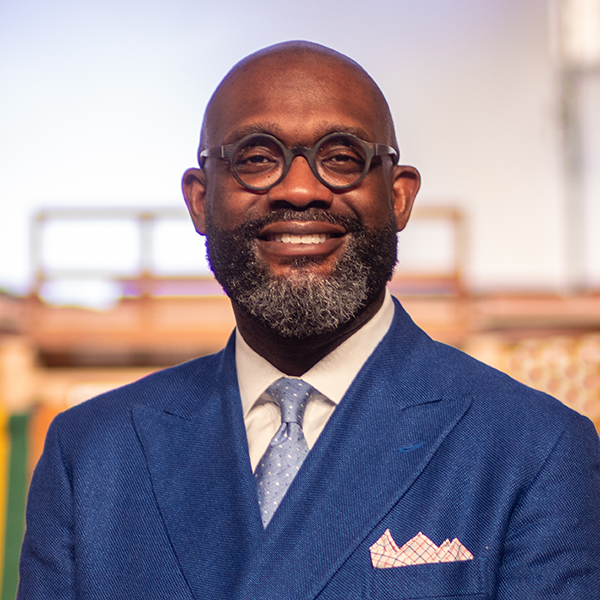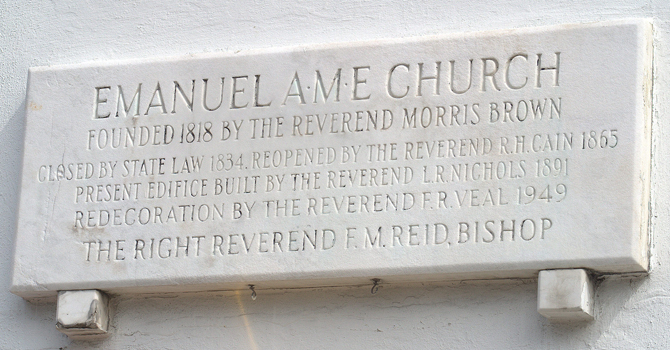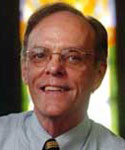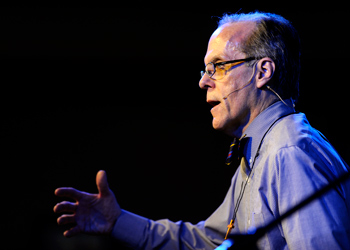Editor’s note: Faith & Leadership offers sermons that shed light on issues of Christian leadership. This sermon was originally preached at Duke’s Goodson Chapel on October 13, 2009, during International Ministry Week.
“What were you talking about on the way?” Jesus asked the disciples.
This is a serious question. This is the question that defines Christian life in general, pastoral ministry in particular and, even more specifically, the time in seminary. The question goes to the heart of what preoccupies our life, our time, our energy -- and our time in seminary. What are you talking about in seminary?
The question not only defines the what, the goal, the telos, the subject matter; it also defines the community, the who (and who with).
In the Gospel we are told that the disciples, on being asked by Jesus, “What were you talking about on the way?” simply kept quiet.
The reasons we are told why they kept quiet: One, they were talking amongst themselves -- with one another, fellow disciples (here we get a sense of the who of their community). Two, it was because of what they were talking about -- who was the greatest. That was the subject of their conversation, the matter of their preoccupation.
Many times when we read this sentence, we immediately suspect a power struggle -- and there might be reasons to suspect that this is what is going on. But Mark does not say it was a power struggle; he simply says they were talking (not even arguing) about who was the greatest.
In fact, in the passage immediately before this text, Jesus was telling the disciples, “The Son of man will be delivered into the hands of men, and they will kill him, and after three days he will rise from the dead” (Mark 9:31).
In view of this, I am tempted to think that the disciples are not talking about power (as to who should be in charge) but about their own capacity to go through this period of trial, perhaps about the capacity to suffer with Jesus or about the capacity to endure (as to who had the greatest capacity to endure), or even about the capacity to pray (in which case their discussion was about who might be the greatest prayer warrior!).
In terms of our own context, it is as if the disciples were talking about -- assessing -- whether and if and who had the capacity, the strength or relevant pastoral skills, for ministry at a time like this, a time that includes suffering and death.
This could be an interesting topic for discussion. What is important, however, is Jesus’ response to these questions that were on the disciples’ minds even as they now kept quiet.
He takes a child and puts the child in their midst. If the disciples were talking amongst themselves, Jesus now puts a child in their midst -- and right there provides the first lesson: conversation must not only be amongst yourselves. It must include such a one as this. You must not only talk about the child; you must talk to and with such a one as this. A community that includes the child, the weak, the vulnerable.
And then Jesus tells them, “Anyone who receives one such child receives me, and not only me but the one who sent me.” Lesson two: your conversation about pastoral ministry (seminary training) should not be focused on capacities and skills, whether the capacity to protect, to sacrifice for, to pray for or even to work for the child; it must be about “receiving such a one as this.”
This is also the greatest lesson that Jean Vanier, founder of the L’Arche communities, teaches us when he reminds us that what the poor, the weak and the disabled require of us is not so much to do things for them. It is not so much to sacrifice on their behalf but to invite them to sit at the same table with us.
International ministry placement has a lot to teach us about this, as it provides an opportunity to learn to receive and be received by such a one as this: the weak, the poor, the voiceless -- the vulnerable.
This is what the story of Archbishop John Baptist Odama of Uganda has to teach us. Since 1999, Odama has been the archbishop of Gulu, in northern Uganda, where for over 23 years a group calling themselves the Lord’s Resistance Army has not only waged war against the Ugandan government; it has terrorized the civilian population, burning villages, killing and maiming civilians, and abducting children as a means of recruitment into their fighting ranks. During this time, over 23,000 children have been abducted.
It was at the height of this insurgency that Odama was installed as first archbishop of Gulu, in 1999.
An installation of an archbishop is very serious business. The archbishop (more than bishop) has a lot of power. At installation, he is given instruments of power: miter, staff and pallium.
In attendance were other powerful dignitaries: a papal representative, the president of Uganda, bishops, ministers and a host of others. All serious stuff.
At his installation, Archbishop Odama took a child in his arms and asked the child, “Do you like war?” The child turned his head from side to side to signify “no.” He then asked the child, “Do you like peace?” The child nodded enthusiastically with a “yes.”
Then, still holding the child in his arms, he turned to the audience and said, “This child has defined for us our pastoral ministry. I commit myself to work for the future that this child has defined, to eliminate war, build peace for the sake of this child, … so that the full humanity of this child might grow and flourish.”
What this commitment has meant, Archbishop Odama [later] shared with us on the Pilgrimage of Pain & Hope, is that “I have to struggle to learn to be peaceful, and to promote peace.”
It is this commitment that has led Odama to a life of activism and intense advocacy for peace -- always speaking on behalf of, and for the sake of, children.
Speaking out against the war, but also moving back and forth between the Ugandan government and the rebels: in endless meetings with President Museveni, asking him to adopt the course of dialogue rather than an iron-fist policy, and offering himself to travel into the bush to meet Kony and the rebels -- and in the process being suspected by both.
The commitment has led him to build coalitions with other leaders, beyond his Catholic community, helping to form the Acholi Religious Leaders Peace Initiative, of which he became the chairperson and spokesperson in 2002 [through 2010].
To join the children in their suffering, for four nights Archbishop Odama, together with the other religious leaders, slept with the children on the street. This drew wide media attention and helped to mobilize the international community and inspire what came to be known as the GuluWalk campaigns around the world and in different cities in the U.S., in which some of you have participated.
On the pilgrimage in 2007, one of the pilgrims asked the archbishop whether he has forgiven Kony. The archbishop replied, “The question is not whether I have forgiven Kony but whether the children have forgiven us.”
Then he said, “One thing that keeps me up at night is this: wondering whether I have done all I could do as archbishop to protect the children.” Then he narrated the experience when, one of the evenings on the night commute, he assembled the children, knelt before them and asked them for forgiveness on behalf of all “the leaders, the adults,” because, he told the children, “We have let you down; we have sacrificed your future.”
It is this intense advocacy, presence and ministry with and for children that leads Archbishop Odama to keep a day (Thursday) of prayer, fasting and adoration -- bringing the children, and indeed all humanity, before God, and straining to hear what God has to say to him on behalf of God’s people.
Recently, marking Peace Day in January 2009, which coincides with the 10th anniversary of his tenure as archbishop, he renewed his ministry on behalf of children. He knelt before them and promised to commit his life and ministry on behalf of children.
Archbishop Odama calls the children ngini ngini -- which in Luo is the name of the tiny ants that are almost invisible and are thus readily stepped on and crushed.
Wherever he goes, he calls the children ngini ngini, which for Archbishop Odama is a term of endearment, a name for these precious, weak, vulnerable creatures of God. And whenever the Archbishop goes, the ngini ngini come running to him and flock around him (holding onto his purple robes).
In time, however, the children have learned to call the Archbishop ngini ngini, so as soon as they see his car, they lovingly wave and run after it shouting, “Ngini ngini!”
It is as if the children have in turn come to recognize the archbishop -- this mighty, strong, powerful man -- as also a weak, vulnerable and precious creature of God.
In receiving and being present to and with the ngini ngini, the archbishop has himself become ngini ngini, and thus he offers a good example of what the Gospel today is talking about -- “Whoever receives one of these receives me, and indeed the one who sent me.”
But he also offers a good example of what pastoral ministry is about. For in a passage following this particular text in Mark, Jesus rebukes the disciples who were sending away children and tells them, “To such as these belongs the kingdom of God.”
The kingdom of God, and therefore pastoral ministry, is about learning to receive -- to welcome -- the ngini ngini in our midst. For only as we do do we ourselves become ngini ngini, which is to say that as we learn to receive, to embrace the precious, weak and most vulnerable members in our own communities, we learn to embrace the precious, weak and vulnerable core of our own identity; we learn to embrace the ngini ngini within us.
It is here, more than anywhere else -- in the weak, vulnerable, tender, easily hurt, young, soft, broken, readily crying core of our lives -- that the kingdom of God belongs. It is here, more than in power, strength and achievements, that we meet God.
Pastoral ministry in international context does not so much teach us skills and capacities of how to take care of the poor; it provides us with an opportunity to learn how to receive and be received by the weak, the poor, the vulnerable -- the easily discarded members of the global community.
But in doing so, we also learn to see and embrace the poor and the weak in communities here in the U.S.
And even more importantly, we learn to receive and embrace the vulnerable core of who we are as children of God. We learn to receive the child within us.
Unless we learn to receive and be received by such as this, our theological conversations will become empty or simply self-serving. We will continue to Facebook and Twitter endlessly amongst ourselves about nothing, or ever rehearse the same uninspiring conversations about skills and capacities -- and about “who is the greatest” among us.
May the Lord save us from such uninteresting theological preoccupation.









